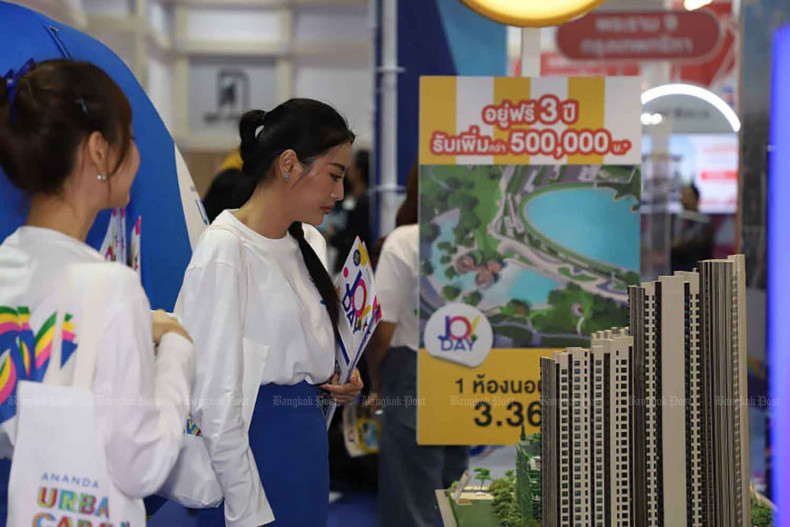
Thai PM allays foreign quota fears on foreign ownership allowed in condominiums
Prime Minister Srettha Thavisin on Sunday defended the proposal to raise the proportion of foreign ownership allowed in condominiums from 49% to 75% and extend land lease terms for foreigners to 99 years from 30-50 years, saying these measures will help stimulate the economy.
However, to ensure Thai condominium owners can continue to exercise control over the property’s management, the proposed changes to foreign ownership quota won’t be followed by an increase in voting rights, said Mr Srettha.
The proportion of voting rights held by foreign owners to those held by their Thai counterparts will remain unchanged at 49% to 51%, according to the PM.
Foreign owners of a condominium unit who purchased their unit after the 49% quota has been filled will basically be able to own and live in their unit, but they won’t have the right to vote in any decision which requires voting among joint owners of the project, he said during a visit to the Eastern Economic Corridor (EEC) area in Rayong.
When asked about the proposed extension of the land lease terms to a maximum of 99 years for foreigners, the PM said other countries allow up foreign residents to lease land for up to 150 years.
Currently, foreigners can lease land for residential purposes for a maximum of 30 years, with one 30-year extension possible if both the landowner and lessee agree. Leases of 50 years are available for approved commercial and industrial projects.
Thailand’s property sector is experiencing a slowdown, with recent figures showing a 19.7% drop in the number of land permits approved throughout the first quarter of the year — the largest decline in nine quarters, as low-rise house transfers fell.
According to a market survey carried out in the first quarter of this year by the Real Estate Information Centre (REIC), there are 213,429 residential properties available across Greater Bangkok, worth a total of 1.2 trillion baht.
Of this number, 85,625 were condominium units, worth more than 370.5 billion baht.
Deputy Prime Minister and Interior Minister Anutin Charnvirakul confirmed on Friday that Mr Srettha had instructed the Ministry of Interior to study these proposals.
Meanwhile, responding to these proposals, Pita Limjaroenrat, list-MP and chief adviser of the main opposition Move Forward Party (MFP), said the government should instead focus their attention on poor Thais without any land, before moving to grant more rights to foreigners to buy and/or lease land and property.
“Three-fourths of Thai citizens don’t have land of their own,” said Mr Pita.
These landless Thai live on land allocated to them by the Agricultural Land Reform Office (ALRO), which can only be used for farming purposes only, on plots leased out to them by a private landlord, or other types of state-owned land, he said.
These new proposals which Mr Pita said reminded him of the controversial proposal to allow foreigners to buy land in Thailand, had been considered by the past regime.
In November 2022, the cabinet bowed to a chorus of disapproval after its proposed plan to study the possibility of allowing foreigners to buy up to 1 rai of land for residential purposes.
In just a couple of weeks after the cabinet approved the proposal, it was withdrawn due to growing criticism, with members of the public accused then-PM Prayut Chan-o-cha of putting the country up for sale.
Source: https://www.bangkokpost.com/property/2816245/pm-allays-foreign-quota-fears


